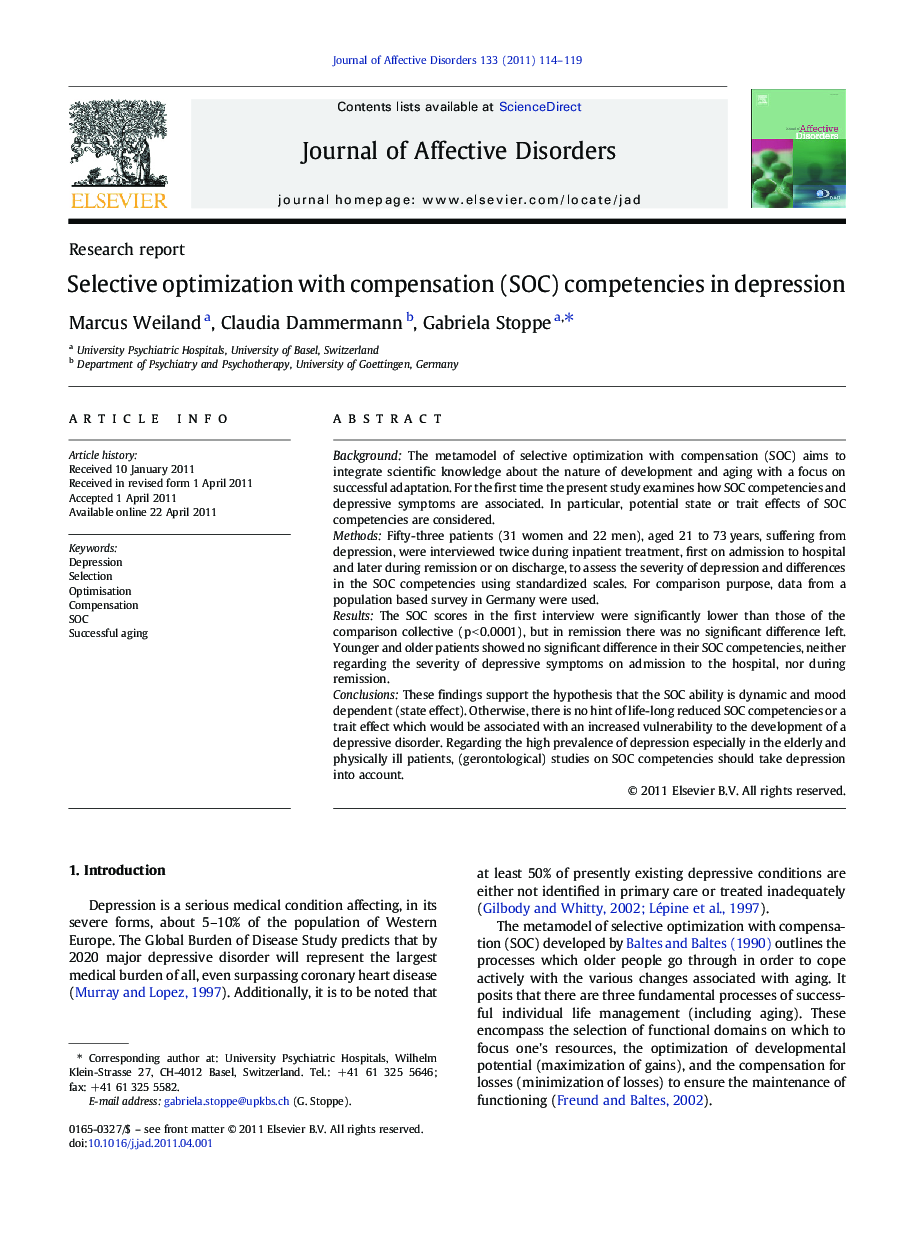| Article ID | Journal | Published Year | Pages | File Type |
|---|---|---|---|---|
| 6235254 | Journal of Affective Disorders | 2011 | 6 Pages |
BackgroundThe metamodel of selective optimization with compensation (SOC) aims to integrate scientific knowledge about the nature of development and aging with a focus on successful adaptation. For the first time the present study examines how SOC competencies and depressive symptoms are associated. In particular, potential state or trait effects of SOC competencies are considered.MethodsFifty-three patients (31 women and 22 men), aged 21 to 73 years, suffering from depression, were interviewed twice during inpatient treatment, first on admission to hospital and later during remission or on discharge, to assess the severity of depression and differences in the SOC competencies using standardized scales. For comparison purpose, data from a population based survey in Germany were used.ResultsThe SOC scores in the first interview were significantly lower than those of the comparison collective (p < 0.0001), but in remission there was no significant difference left. Younger and older patients showed no significant difference in their SOC competencies, neither regarding the severity of depressive symptoms on admission to the hospital, nor during remission.ConclusionsThese findings support the hypothesis that the SOC ability is dynamic and mood dependent (state effect). Otherwise, there is no hint of life-long reduced SOC competencies or a trait effect which would be associated with an increased vulnerability to the development of a depressive disorder. Regarding the high prevalence of depression especially in the elderly and physically ill patients, (gerontological) studies on SOC competencies should take depression into account.
